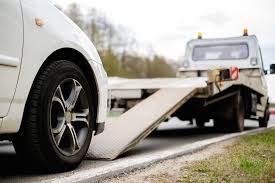Having your car repossessed can cause you stress and overwhelm. Californians’ vehicles are essential to their daily lives, whether they need them for work, family obligations, or just getting around. When your car is repossessed, it’s essential to know that you have options and rights. You can protect yourself and recover your vehicle by becoming familiar with California law regarding repossession.
This post will outline your legal rights under California law and provide instructions on what to do if your car is repossessed in the state.
1. The Repossession Of Your Home: What Caused It?
The most common reason for repossession of an automobile is when the borrower defaults. This can include missing a repayment, failing to have the required insurance coverage, or violating the terms and conditions of the loan contract. California lenders have the right to repossess cars without any prior notification if you fall behind on payments. However, the repossession must be conducted legally, peacefully, and orderly.
California repo laws prohibit lenders from repossessing or any other agent.
- Threaten or use of force
- Break into a locked garage
- Damage to your property
If you believe that the repossession involved an unlawful act or breach of peace, you may have grounds for a legal claim.
2. Confirm The Repossession
As soon as you notice that your car is missing, confirm that it hasn’t been stolen or towed for any other reason. Contact either your lender or repo agency directly. They must give information on the repossession. Include the name and phone number of the firm that took your vehicle.
3. Your Rights After Repossession
California has strict consumer protection laws after a vehicle’s repossession. The lender is required to send you an “Intent to Sell Notice” within 48 hours of repossession. This notice should contain:
- The amount of money you need to pay when redeeming the vehicle
- The intended date and location
- You may be entitled to re-loan the loan if this is applicable.
- Find out how to get your property back if you have left it in your car
The lender may violate California Repo Laws if they fail to send out this notice and/or omit important information. In that case, you might be entitled to damages.
4. Recover Your Items
Your personal property is still yours, even if the lender owns your vehicle. California law states that the repo or lender must allow you access to your personal belongings. They must safely store your items and allow you a reasonable time to collect them.
Contact the repossession agent as soon as possible to schedule a collection time. Do not forget to record all communications.
5. Redeem Or Reinstate The Loan
California residents often have the right to re-establish their loan. They can do this by catching any missed payments and paying the late fees. This will enable you to continue with the original loan and get your vehicle.
You may also decide to redeem the car, which involves paying the full balance of the loan, plus any applicable fees and charges. This terminates your loan and transfers complete ownership of the automobile to you.
Both options require a certain amount of time, and the lender specifies the deadline on the post-repossession letter. If you have questions about your rights, it is best to consult with a California repossession lawyer who has experience in this area.
6. Consumer Rights Attorneys Are Ready To Help You
If you feel that your car was wrongfully repossessed or that the lender failed to follow proper legal procedure, contact a lawyer for consumer rights. These professionals can review the case, assist you in understanding your options, and take possible legal action on your part.
California repo law attorneys can also assist in negotiating with lenders, challenging deficiency amounts, or recovering damages when your rights are violated.
Conclusion
You may feel helpless if your car is repossessed. But that doesn’t necessarily mean you have no options. California has consumer protection legislation in place that ensures lenders and repossession agents behave legally and fairly. California’s repossession laws are complex, but by following the correct steps, from reclaiming your belongings to exploring loan reinstatement, you can regain control.
If you are unclear about what to do or suspect that your rights have been infringed, you should get legal counsel. The right advice could make all the difference in protecting your future financial security and recovering your vehicle.
ALSO READ: Keep Your Septic System Running In Santa Clarita With Regular Pumping



